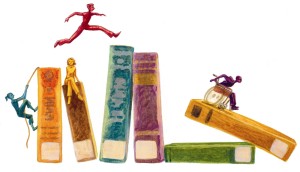 Options to pursue careers working in the field of special education could lead a future or current professional to consider what a special education coordinator does every day in order to best help all students succeed. From working with students directly to developing curriculum, the coordinator of a special education program plays an essential role in education.
Options to pursue careers working in the field of special education could lead a future or current professional to consider what a special education coordinator does every day in order to best help all students succeed. From working with students directly to developing curriculum, the coordinator of a special education program plays an essential role in education.
Offering Student Support
Special education is growing in schools throughout the United States, and in order to best provide the curriculum and support needed, districts and private schools employ coordinators. These coordinators perform a number of tasks, including working with students in order to determine areas in which services should be implemented. A coordinator might also work closely with students in the classroom environment in order to assess a program and student performance. This is beneficial in order to identify potential areas of change and improvement.
Collaborating With Families
Families, too, are at the heart of what a special education coordinator does. To fully support a student’s success in the classroom, family and other support outside of the school environment is essential. Coordinators often work with families in order to find after school programs and other services that are beneficial to all types of special education learners, including everything from extracurricular gifted science and math programs to play groups that promote skills such as fine motor development. Special education coordinators might also be able to help parents, guardians, and other care providers with resources for help with a number of other factors that can inhibit a student’s ability to succeed in a special education program.
Overseeing Curriculum
Special education coordinators also develop relationships with classroom teachers, subject specialists, administrators, and other educators in order to develop, manage, and assess various elements of a curriculum and its implementation. Coordinators also assess the delivery of instruction in a classroom, which is also helpful for identifying areas in which curriculum or instruction can be modified to achieve the best results for students. Coordinators are also often in charge of managing some professional development for educators in order to keep knowledge and skill in this specialized area of education up-to-date with the latest techniques and research.
Many organizations are dedicated to research in the area of special education, identifying indicators and resources for special education coordinators to review. Additional information can be found at the National Education Association website.
Organizing Community Resources
Working with students, families, and educators is part of the daily task of a special education coordinator, but another area in which coordinators must be skilled is finding resources and building relationships with various organizations in order to provide services, extracurricular activities, and support to students outside of the school day as well. Coordinators might work closely with government agencies, religious organizations, community groups, and non-profit organizations in order to find support and services for special education students and their families from finances to tutoring to health care.
Related Resource: Early Interventionist
In special education programs throughout early, elementary, and secondary education, coordinators are responsible for creating and managing all of the different aspects of helping to support learners with various barriers from learning disabilities to physical impairments to gifted needs. Fundamentally, supporting students, families, and educators is the foundation of what a special education coordinator does.



